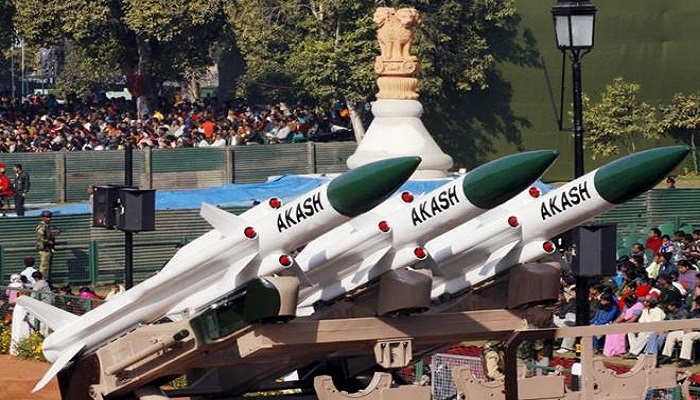
National auditor CAG has said a 30 per cent failure rate was found in the surface-to-air missiles Akash during testing and held that such deficiencies posed an operational risk during hostilities.
In a report tabled in the Lok Sabha today, the Comptroller and Auditor General said the strategic missile system procured from the state-run Bharat Electronics Ltd were deficient in quality. The missiles were to be deployed on the China border.
The report said missile systems were to be installed at the six designated sites between 2013 and 2015. But till date, none of the missile systems procured at a cost of Rs 3,619 crore has been installed due to delay in execution of civil works at the sites concerned.
The CAG did not mention name of the strategic missile but sources said the auditor was referring to the Akash missiles.
“Out of 80 missiles received up to November 2014, 20 missiles were test fired during April-November 2014. Six of these missiles that is 30 per cent, failed the test,” the CAG said in the report.
The auditor said as the failure rate of the sample tested was as high as 30 per cent, action needs to be taken to establish the reliability of factory acceptance test of the remaining missiles.
Preliminary failure analysis report, the CAG said, revealed that the missiles fell short of the target and had lower than the required velocity. There was also malfunctioning of critical units.
“Two missiles had failed to take off because the booster nozzle had failed. These deficiencies posed an operational risk during hostilities,” the CAG said.
In view of the threat perception, the government had approved the induction of the strategic missile in the Northeast sector to provide the necessary deterrence and counter possible threat from China.
The CAG said failure analysis of the first three failed missiles was completed in August 2014 while that of another three missiles was completed in May 2016.
“IAF replied that action for replacement of the failed missiles was being undertaken. IAF also stated that BEL had replaced the three failed missiles in January 2016 and the remaining three missiles were yet to be replaced.
“Audit is of the view that it is not just a matter of replacing the missiles that failed in the test. As the failure rate of the sample tested was as high as 30 per cent, action needs to be taken to establish the reliability of the balance ‘Z’ missiles,” the CAG said.
The CAG was also not ready to accept Indian Air Force’s argument that the delay in commissioning of missile system was not attributable to non-availability of infrastructure, but the delay by BEL in supply of maintenance spares and completion of acceptance checks of missiles.
The auditor said the defence ministry may review the quality of the factory acceptance test (FAT) of the missiles so as to enhance reliability of FAT.

Post Your Comments